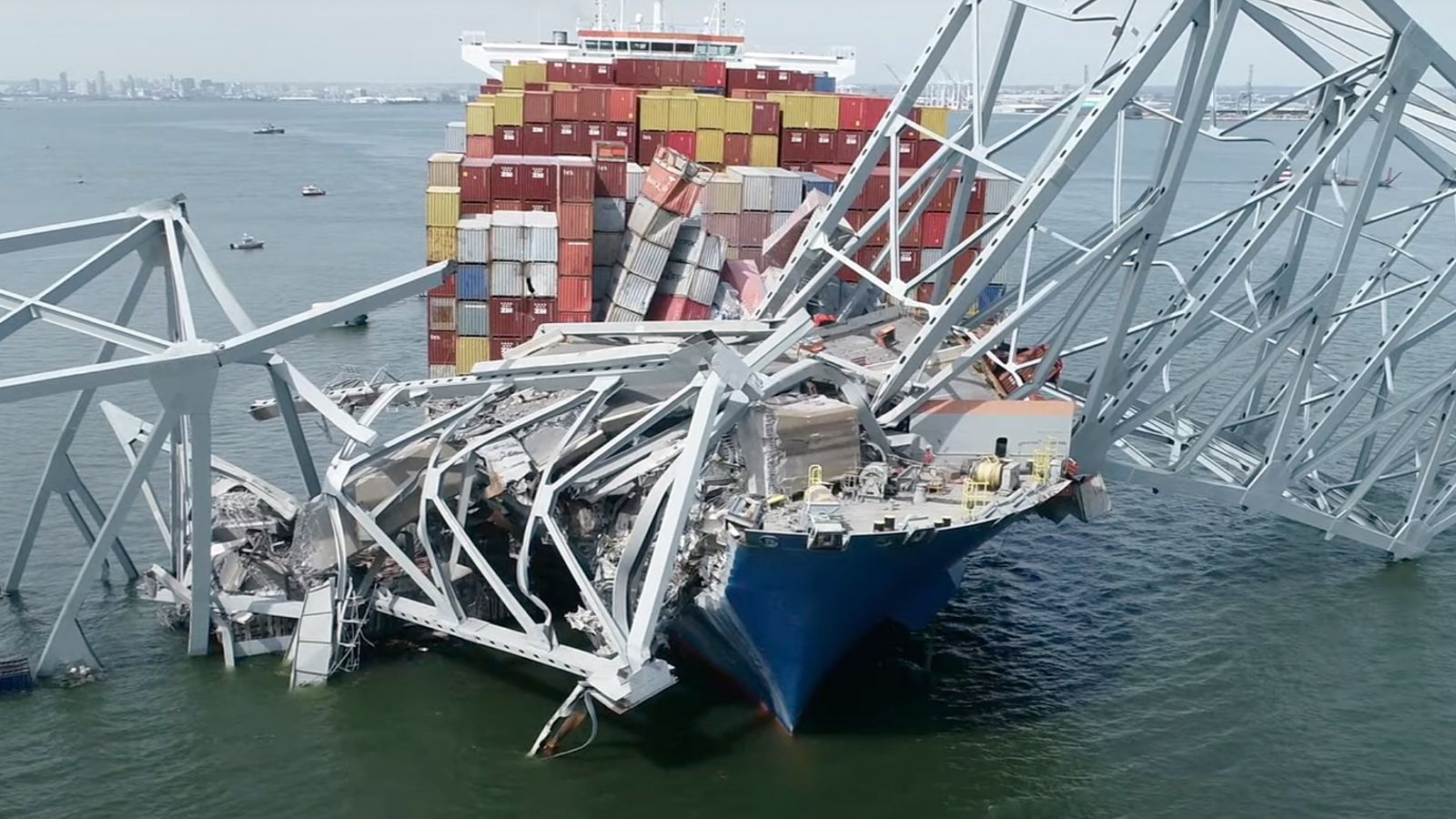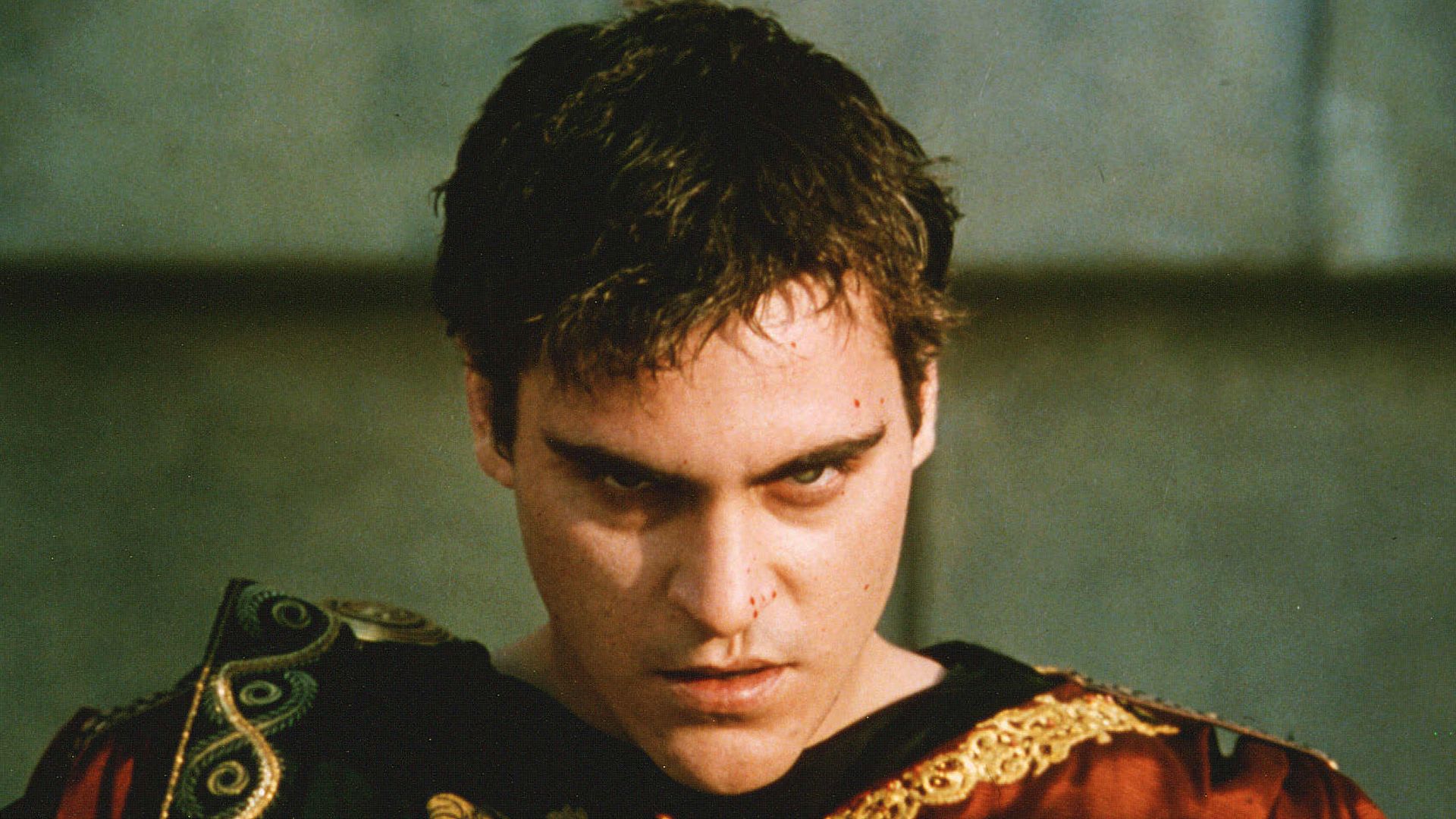A pilot on board the cargo ship that crashed into the Baltimore bridge tried to swing it clear of a collision by dropping its port anchor to pivot it away, authorities said.
The pilot and a second on board at the time of collision will be interviewed by the National Transportation Safety Board (NTSB) today.
The US Coast Guard also confirmed that the container ship’s engines had undergone routine maintenance while in the Baltimore port.
In a press conference, officials said one of the Dali’s pilots dropped the port anchor in an effort to pivot it clear of the Francis Scott Key bridge.
Information recovered from the ship’s voyage data recorder (VDR) showed power failed for just one minute and three seconds as it approached the structure, but that was enough for the collision to become seemingly unavoidable .
The recorder, which officials noted is “very basic” when compared to those on aircraft, stopped picking up sensor data during the outage but did record audio of the pilot giving steering commands and rudder orders and had enough information to create a timeline leading up to impact:
00:39:00 VDR recorded ship’s departure from Seagirt Marine Terminal
01:07 ship had entered the Fort McHenry Channel
01:24 ship was on a heading underway on a true heading of approx 141 degrees at a speed of 8 knots / 9.2mph
01:24:59 Numerous audible alarms recorded on ships bridge audio – at same time, the VDR stopped recording sensor data, but continued to record audio using redundant power source
01:26:02 VDR sensor data recording resumed. Steering commands and rudder orders were recorded on the audio during this time
01:26:39 Pilot made general VHF call for tugs in the vicinity to assist. At the same time, the power of association dispatcher phoned the Maryland Transport Authority (MDTA) duty officer regarding the blackout
01:27:04 Pilot ordered the DALI to drop the port anchor and ordered additional steering commands
01:27:25 Pilot issued a radio call over the VHF radio reporting the DALI had lost all power and was heading towards the bridge. Around this time MDTA data shows the following also occurred: the duty officer radioed to their units that were already on scene due to construction on the bridge – one on each side of the bridge – and ordered them to close the traffic on the bridge. All lanes were then shut down by MDTA
01:29:00 ship’s speed was just under 7 knots / 8pmh and from 0129:00 to 01:29:33 the ship’s audio recorded the collision of the bridge
01:29:39 Pilot reported the bridge down over the audio to the coast guard
Power went out on ship moments before crash – this is what we know
Baltimore bridge collapse: Bodies of two victims recovered, after audio of first responder call emerged
End of an era in Baltimore after bridge collapse leaves residents in disbelief
An official also said that the Key Bridge was fracture-critical, which means “if a member fails that would likely cause a portion of, or the entire bridge, to collapse, there’s no redundancy”.
NTSB board chair Jennifer Homendy also noted that according to the Federal Highway Administration, there are close to 17,500 fracture-critical bridges in the US.
She added: “It’s pretty devastating, certainly, seeing not just what’s going on with the cargo containers, but just looking at what was a bridge span – three bridge spans that is pretty much gone. It’s just utter devastation.”
It comes after the bodies of two victims were recovered from a red pick-up truck that was found in the Patapsco River, around 25 feet deep in the water.
The men recovered have been identified as Alejandro Hernandez Fuentes, 35, who was from Mexico and lived in Baltimore, and Dorlian Ronial Castillo Cabrera, 26, who was from Guatemala and lived in Dundalk, Maryland.
👉 Tap here to follow the Sky News Daily wherever you get your podcasts 👈
Earlier on Wednesday, the first two missing construction workers were named as Miguel Luna, a 49-year-old from El Salvador, and Maynard Sandoval, a 37-year-old father-of-two. Two other people are also still missing – all are presumed dead.
The recovery mission is now a salvage operation as it is no longer safe for divers to navigate or operate around the debris and concrete in the port.
Read more:
Everything we know about the disaster
End of an era in Baltimore
Please use Chrome browser for a more accessible video player
The victims, who were from Mexico, Honduras, El Salvador and Guatemala, were part of a crew filling potholes on the bridge’s road surface at the time of the collapse.
The Key Bridge carried the Interstate 695 highway over the Patapsco River southeast of the Baltimore metropolitan area.
US President Joe Biden has promised that he will visit Baltimore “as soon as possible”, adding that the federal government will cover the “full cost” of rebuilding the bridge – which experts say could be over $600m (£474m).
Its main section spanned 1,200 feet and was one of the longest continuous truss bridges in the world upon its completion, according to the National Steel Bridge Alliance.
The Dali was previously involved in a minor incident when it hit a quay at the Port of Antwerp in Belgium in 2016, where it was damaged, according to Vessel Finder and maritime accident site Shipwrecklog.
Keep up with all the latest news from the UK and around the world by following Sky News






